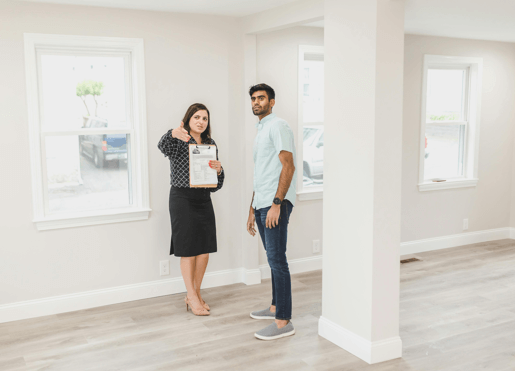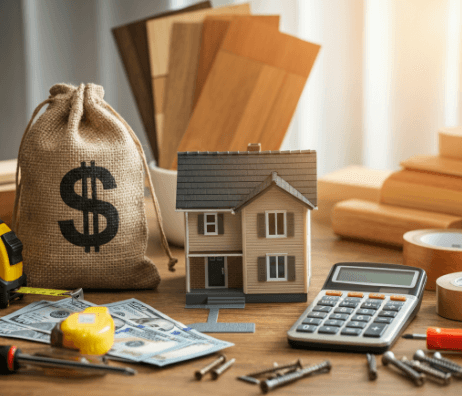Deciding which repairs to make before listing your Sunrise home can feel overwhelming, but spending money on the wrong updates is a common and costly mistake. Many sellers are surprised to learn that common cosmetic upgrades, like minor kitchen remodels, often recoup less than 70% of their cost at resale. Understanding what not to fix when selling a house in Sunrise, Florida, is key to maximizing your net profit and avoiding unnecessary expenses. Buyers often prefer to make their own updates, and many will request repair credits after an inspection anyway, making your pre-sale work redundant. This is why knowing what not to fix when selling a house in Sunrise, Florida, can save you thousands and speed up your sale. Cash home buyers Steve Daria and Joleigh buy homes as-is, so you can skip repairs. If you want expert guidance on your specific situation or a no-pressure cash offer, book a free discussion with our team today.
What does “what not to fix” mean when selling a house in Sunrise, Florida?
When selling your home, “what not to fix” refers to identifying repairs and updates that are unlikely to increase your sale price enough to justify their cost.
This means you can often skip minor cosmetic flaws, personalized decor choices, or small-scale landscaping projects that a new owner might change anyway.
It is also wise to leave dated but fully functional fixtures, as many buyers in Sunrise prefer to renovate a home to their own specific tastes.

Understanding what not to fix when selling a house in Sunrise, Florida, helps you avoid spending money on improvements that won’t provide a return on your investment.
Instead, focus on addressing critical issues — such as active leaks or safety hazards — that are more likely to concern inspectors.
Even if a buyer notes minor issues, they may be just as happy with a credit at closing as with a repair you complete.
Ultimately, being selective allows you to protect your timeline and avoid over-investing in the property.
The goal is to maximize your final net profit by avoiding updates that don’t add significant value.
Get An Offer Today, Sell In A Matter Of Days
If I sell my house “as-is,” does that mean I can ignore all repairs?
Selling your house “as-is” in Sunrise signals to buyers that you do not intend to make any repairs, but it does not mean you can completely ignore the home’s condition.
Buyers will still conduct a home inspection to understand what they are purchasing, and their findings can lead to new negotiations or even a canceled contract if major issues are discovered.
While you can leave minor cosmetic problems alone, significant health and safety issues still require you to act, either by fixing them or adjusting the price.
This is where understanding what not to fix when selling a house in Sunrise, Florida, becomes crucial for managing expectations.
You have options, such as offering a seller credit at closing or simply pricing the home competitively to reflect its current state from the start.
Full disclosure of known defects is not only required by law but also builds trust and attracts serious buyers who appreciate transparency.
This approach protects your timeline by avoiding lengthy repair negotiations.
Ultimately, selling as-is is about setting clear terms to achieve a faster, more predictable sale while safeguarding your net proceeds.
What are the most important repairs to make before selling in Sunrise, Florida?
- Roof and Water Issues: Address any active roof leaks or significant water intrusion issues first. In Sunrise, Florida, a sound roof is critical to buyers due to frequent storms and humidity, so fixing these problems prevents major inspection failures and shows the home is well-maintained.
- Air Conditioning System: Ensure your air conditioning system is functioning correctly and efficiently. A working AC is non-negotiable for Florida buyers, and a system that struggles or fails will be a major red flag that could derail a sale or lead to expensive credit requests.
- Electrical Safety Hazards: Resolve any obvious electrical safety hazards, such as exposed wiring, non-working GFCI outlets near water, or missing smoke detectors. These are top priorities for home inspectors and can be deal-breakers for buyers concerned about safety and insurance eligibility.
- Plumbing Problems: Fix major plumbing problems like persistent leaks under sinks, running toilets, or low water pressure. Water damage is a significant concern for buyers, and addressing these issues demonstrates that the home’s core systems are in good shape.
- Structural and Permit Issues: Correct any known structural problems or unpermitted work that could cause issues with financing or insurance. This includes addressing foundation cracks or ensuring additions are properly permitted, as these can create significant hurdles during the closing process.
Is it cheaper to give a buyer a repair credit than to do the work myself?
Deciding between giving a buyer a repair credit and doing the work yourself involves a trade-off between cost, convenience, and certainty.
Offering a credit is often faster and provides a fixed cost, removing the risk of unexpected expenses or project delays on your end.
However, buyers sometimes overestimate repair costs during negotiations, so you might pay more in credits than the actual job would cost.
Doing the repairs yourself could lead to a higher final sale price, but it opens you up to potential contractor issues and a longer timeline.
Deciding what not to fix when selling a house in Sunrise, Florida, is a key part of this calculation, as you want to avoid paying for low-impact updates.
A repair credit also sidesteps potential issues with a buyer’s lender, who may not approve a loan if major repairs are incomplete before closing.
This approach keeps the sale moving forward without you having to manage any of the work.
Ultimately, the best choice depends on whether you prioritize a quick, predictable closing or are willing to manage repairs to maximize your sale price potentially.
What is the best way to handle repair requests from a buyer if I’m selling as-is in Sunrise, Florida?
- Be Clear About “As-Is” From the Start: Let buyers know upfront that you’re selling the home as-is. This sets the right expectations and helps avoid surprises during negotiations.
- Review Every Request Carefully: Even though you’re selling as-is, take time to read each repair request. Some might be small fixes that make closing smoother or faster.
- Consider Offering a Credit Instead of Repairs: If a repair is important to the buyer, you can offer a price credit rather than a repair. This keeps the sale simple and avoids delays.
- Get Advice From Your Real Estate Agent: Your agent can help you understand which requests are reasonable and which you can decline. They’ll guide you to protect your best interests.
- Stay Calm and Keep Communication Open: Buyers may still negotiate, even on an as-is sale. Stay polite and open to discussion—it helps both sides reach a fair agreement more quickly.

How do I prepare my home for showings if I’m selling it as-is?
Even when selling your home as-is, thoughtful preparation can significantly impact a buyer’s perception and help you secure a better offer.
Your main goal is to showcase the home’s potential without spending money on repairs, so focus on a deep clean and thorough decluttering to make the space feel larger and more inviting.
Enhance the presentation by opening all blinds to maximize natural light and ensuring every room smells fresh and neutral.
While you are clear on what not to fix when selling a house in Sunrise, Florida, it is wise to address minor safety issues, such as loose handrails.
Boost your home’s curb appeal by refreshing the yard, and make sure all disclosure documents are fully prepared for potential buyers.
This transparency builds trust and sets clear expectations from the start.
If you want to skip showings entirely, expert real estate investors Steve Daria and Joleigh offer a simple alternative.
As seasoned cash house buyers, they can provide a fast, fair offer for your home in its current condition.
To explore a straightforward cash sale with no showings, book a free, no-pressure discussion with our team today.
Takeaways
- Focus on Major Issues: Focus on major issues that affect safety and structure, not minor cosmetic flaws. While a leaky roof or faulty air conditioning are critical fixes in Sunrise, you can often leave small scuffs, dated but functional fixtures, and personalized paint colors for the new owner to handle.
- Repairs with Positive ROI: Focus on repairs with a positive ROI, boosting your home’s value or appeal. A costly kitchen remodel might not pay off, but an electrical panel update almost certainly will.
- Transparency in As-Is Sales: Understand that selling “as-is” doesn’t hide problems; you must still disclose known defects. Buyers will conduct an inspection, so it’s better to price your home fairly to account for its condition rather than face difficult negotiations or a canceled contract later.
- Consider Seller Credits: Be open to offering a seller credit or a price reduction instead of making repairs yourself. This approach saves you time and stress, provides a fixed cost, and allows the buyer to make updates to their own taste and standards after closing.
- Protect Your Timeline and Proceeds: Strategically choosing what not to fix protects your net proceeds and shortens your selling timeline. By avoiding unnecessary projects, you reduce your upfront costs, eliminate potential contractor delays, and move toward a faster, more predictable sale.
**NOTICE: Please note that the content presented in this post is intended solely for informational and educational purposes. It should not be construed as legal or financial advice or relied upon as a replacement for consultation with a qualified attorney or CPA. For specific guidance on legal or financial matters, readers are encouraged to seek professional assistance from an attorney, CPA, or other appropriate professional regarding the subject matter.

